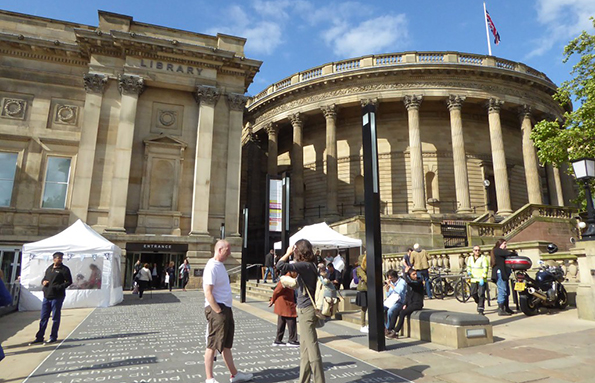
University of Liverpool academics secured an £800K AHRC grant to create an open access, digital reconstruction of Enlightenment culture, by studying which books were most frequently borrowed from libraries during the period.
Until now, scholars researching the influence of ideas on significant historical events between 1731 and 1800 – such as the French or American Revolutions – would look to the major philosophical texts written at the time.
But this project, entitled Libraries, Reading Communities and Cultural Formation in the Eighteenth Century Atlantic, led by the University’s Professor Mark Towsey, will seek to construct a database allowing users to pinpoint which books were borrowed most frequently, who borrowed them and which tomes rarely left the library shelves; effectively revealing what was read, where, by whom and to what effect.
Professor Mark Towsey, from the Department of History, said: “We expect that this data will have a transformative effect on how scholars from a very wide range of disciplines study the circulation and reception of 18th-century texts.
“It will allow the project team – and subsequent users of the database – to map in unprecedented detail the dissemination of texts in literature, political science, economics, philosophy and history, including the impact of radical new ideas associated with the Enlightenment and the Age of Revolutions.”
The project – working with nine library partners in the UK, USA and Australia – will focus on the role played by voluntary subscription libraries, of which there were around 350 across Atlantic bordering countries by the turn of the 19th Century.
A precursor of the modern public library, unregulated subscription libraries grew as a means of providing access to expensive books that were beyond financial reach through individual purchase.
The very first formal subscription library was the Library Company of Philadelphia, founded in 1731 by Benjamin Franklin and a group of like-minded artisans.
Professor Towsey, also Director of Liverpool’s Eighteenth-Century Worlds Research Centre, said: “Subscription libraries’ collections – captured in the library catalogues that are the main focus of this project – constituted material instantiations of readers’ shifting interests, helping to reveal the role of newly enfranchised readers in reorganising and extending literary, intellectual and political culture.”
A team of eight investigators drawn from the UK, USA and Australia will work on the three year project, including world-leading experts at Western Sydney University’s Digital Humanities Research Group and two newly appointed, Liverpool based Postdoctoral Research Associates; Dr Sophie H Jones and Dr Max Skjönsberg.
The nine partner libraries include surviving libraries from the period in review; the Library Company of Philadelphia, the New York Society Library, , the Library Company of Burlington the Union Library of Hatborough and the Linen Hall Library in Belfast; as well as Liverpool Central Library, Bristol Central Library, the Birmingham and Midland Institute and the State Library of New South Wales.
Professor Towsey added: “Alongside the crucial enrichment work we will be doing with partner libraries, we also aim to make a critical intervention in current national and international debates about library provision, enabling contemporary discussion about the value of libraries through better understanding of their historical roles in the formation of reading communities.”
To find out more about the Libraries, Reading Communities and Cultural Formation in the Eighteenth Century Atlantic project, please visit: https://gtr.ukri.org/projects?ref=AH%2FS007083%2F1